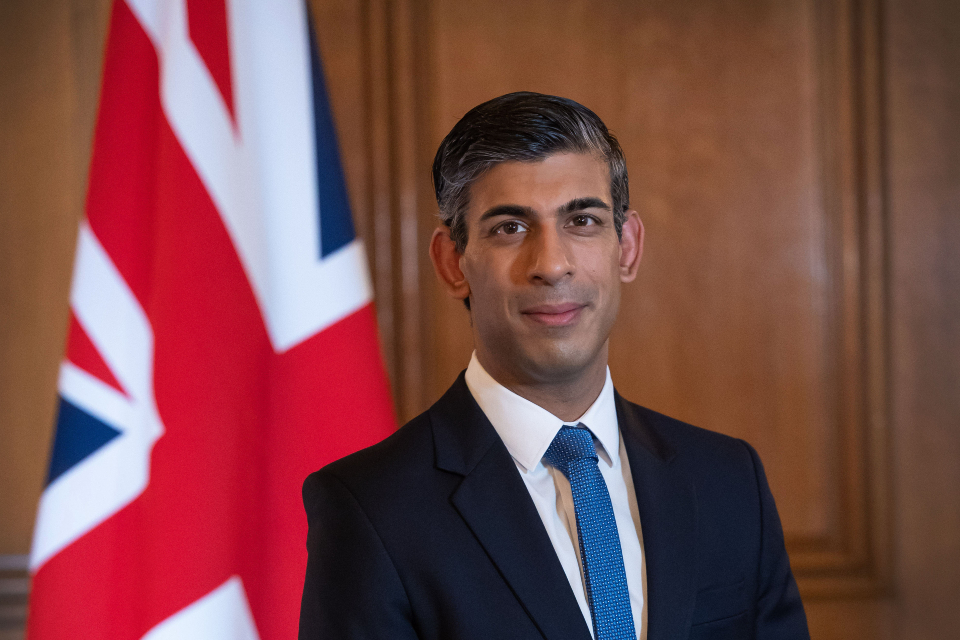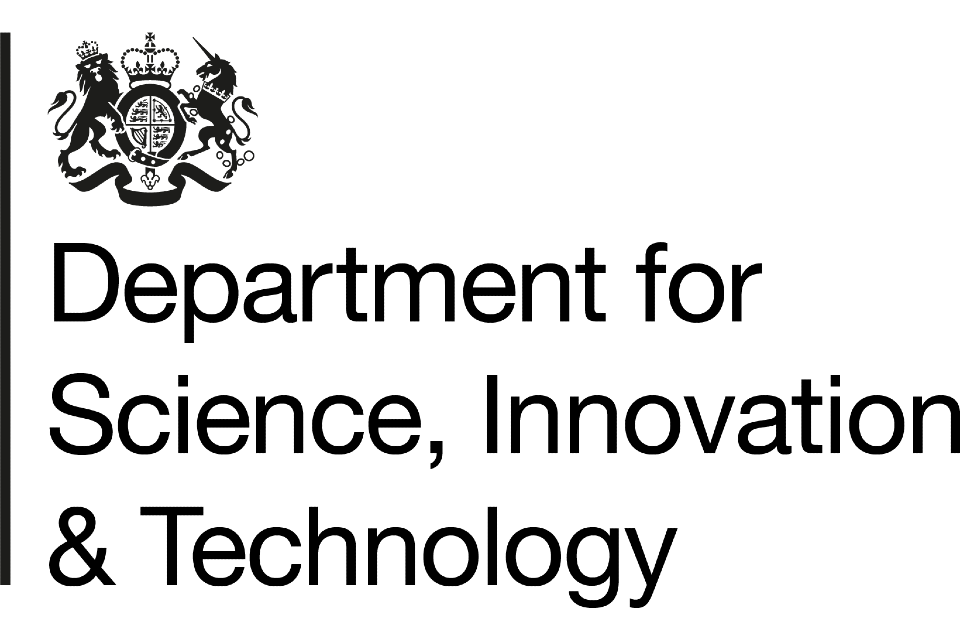Making Government Deliver for the British People (HTML)
Published 7 February 2023
Foreword from Prime Minister

A picture of the Prime Minister
The people’s priorities are the Government’s priorities. I began this year by promising the British people I was going to change the way this country works. And we cannot do that – we cannot deliver the people’s priorities – without changing the way our system works.
To deliver our promises and build a better future, we are making four major changes today.
The Department for Energy Security and Net Zero will focus on giving the UK cheaper, cleaner, more secure sources of energy – cutting bills, cutting emissions, and cutting our dependence on international energy supplies, like those of Putin’s Russia.
The Department for Science, Innovation and Technology will make sure the UK is the country where the next great scientific discoveries are made – and where the brightest minds and the most ambitious entrepreneurs will turn those ideas into companies, products, and services that can change the world.
The Department for Business and Trade will be a single, coherent voice for business inside government, focused on growing the economy with better regulation, new trade deals abroad, and a renewed culture of enterprise at home.
And we will streamline and re-focus the Department for Culture, Media and Sport to support and celebrate the immeasurable richness those sectors bring to our national life.
Greater focus, dedicated leadership, and better-targeted resources will help us deliver our promises in the here and now, as we halve inflation, grow the economy, reduce debt, cut waiting lists, and stop the boats.
But these changes will also allow us to build a more prosperous future for our children and grandchildren. Because the countries that will lead the world in the decades to come will be those that have the vision and confidence to adapt and change - to do things differently and better. The new clarity and focus we are providing today will allow our country to rise to this challenge.
And now, it is the task of every one of us in government – Ministers, advisers, and the hundreds of thousands of dedicated civil servants up and down the country – to get on and deliver for you, the British people.
Rt Hon Rishi Sunak MP
Prime Minister
Overview
The way that government works must never stand still, but rather evolve to meet the challenges of the day. A principal reason for the enduring success of the UK system of government is its ability to change and adapt – focusing effort on the issues that matter to the safety and prosperity of the British people, responding to shifts in both the domestic and global context and keeping pace with advances in technology, all while drawing on a deep institutional memory.
In recent years, a number of important developments both at home and abroad have demanded a response from the government.
-
As the global environment has become more contested, and Russia’s illegal invasion of Ukraine has seen a land war break out in Europe, energy security has come into greater focus, with the Department for Business, Energy and Industrial Strategy growing its work to enhance the UK’s energy security in the short and long term.
-
The Government’s commitment to achieve net zero by 2050 and the achievements of COP26 have driven activity across departments and required us to develop new markets in renewables, nuclear and other technologies to decarbonise industry and meet our legally binding carbon reduction targets.
-
The increasingly central role played by science and technology in the global economy and in citizens’ everyday lives has been mirrored by the significant expansion in the digital side of the Department for Digital, Culture, Media and Sport, and the establishment of the Advanced Research and Invention Agency.
-
The UK’s departure from the European Union returned control over trade policy, with the Department for International Trade completing four brand new trade agreements since the UK’s withdrawal alongside over 70 continuity agreements.
-
Cultural and creative industries in the UK have continued to grow at a rapid pace, recovering swiftly from the impact of the pandemic in part thanks to the Culture Recovery Fund, with the Department for Digital, Culture, Media and Sport working to help realise the significant potential for further growth – which can also make a major contribution to levelling up.
Individual departments, and the Government as a whole, have already been responding to these developments. But looking forward, it is clear that these trends will continue to demand greater engagement and effort – and so it will be vital in the months and years ahead that the machinery of government is set up to equip the right teams to focus on the right issues.
With this goal in mind, the Government is therefore making a number of changes to the current departmental structures.
-
A new Department for Energy Security and Net Zero, - will focus on: ensuring security of energy supply this winter, next winter and in the longer-term – bringing down energy bills and reducing inflation; ensuring the UK is on track to meet its legally binding carbon budgets and Net Zero commitments; helping the economy to grow by significantly speeding up delivery of network infrastructure and green energy; improving the energy efficiency of UK homes, businesses and public sector buildings; and delivering the Energy Bill.
-
A dedicated Department for Science, Innovation and Technology will focus on: optimising public R&D investment to support areas of relative UK strength and increase the level of private R&D to make our economy the most innovative in the world; promoting a diverse research and innovation system that connects discovery to new companies, growth and jobs; supporting innovation across public services including the NHS and schools; strengthening international collaboration on science and technology in line with the Integrated Review; passing the remaining stages of the reformed Online Safety Bill to keep British people, especially children, safe online; and delivering key legislative and regulatory reforms to drive competition and promote innovation. It will take over the sponsorship of UKRI, which will remain our largest and most important funder of R&D.
-
A single Department for Business and Trade will focus on: delivering economic growth opportunities across the economy; backing business by improving access to finance and delivering a pro-enterprise regulatory system ; promoting British businesses on the global stage and attracting high-value investment, including through high quality Free Trade Agreements with India and other priority partners; promoting competitive markets and addressing market distorting practises to support growth, whilst protecting consumers; championing free trade; ensuring economic security and supply chain resilience; supporting economic growth and innovation by making the most of Brexit freedoms and removing unnecessary regulatory burdens; and delivering key legislation including the Retained EU Law (Revocation and Reform) Bill and Strikes (Minimum Service Levels) Bill.
-
A streamlined and refocused Department for Culture, Media and Sport will focus on: supporting our world-leading cultural and creative industries to thrive; creating a broadcasting and media system fit for the 21st century; boosting participation opportunities by increasing investment in grassroots sports, and delivering reforms to football governance; completing the review of the Gambling Act to make the UK the safest place in the world to gamble; and delivering the National Youth Guarantee to give young people access to more activities, trips away from home and volunteering opportunities.
In addition, and as part of these changes, responsibility for National Security and Investment policy, and the associated teams, will move from what was the Department for Business, Energy and Industrial Strategy to sit under the Chancellor of the Duchy of Lancaster in the Cabinet Office.
These changes will take effect immediately, with ministerial and official leadership teams in place, and with each department holding a set of priority objectives. The full transition programme will complete over the coming months, with a priority placed on minimising disruption to ongoing delivery. Further detail on each department is set out in the remainder of this document.
Taken together, these changes will equip government for the work it needs to do on behalf of the British people not just over the coming weeks and months, but for the years ahead.
Department for Energy Security and Net Zero

The logo for Department for Energy Security and Net Zero
Mission
The Department for Energy Security and Net Zero will provide dedicated leadership focused on delivering security of energy supply, ensuring properly functioning markets, greater energy efficiency and seizing the opportunities of net zero to lead the world in new green industries. This year, the department will focus on easing the cost of living and delivering financial security by bringing down energy bills and keeping them down - better insulating consumers from external impacts. Longer term objectives include ensuring properly functioning energy markets; coordinating Net Zero objectives across government; and bringing external delivery expertise to bear on its portfolio of major projects. The Department for Energy Security and Net Zero is focused on the energy portfolio from the former Department for Business, Energy and Industrial Strategy (BEIS).
Priority Outcomes
- Ensure security of energy supply this winter, next winter and in the longer-term – bringing down energy bills and reducing inflation.
- Ensure the UK is on track to meet its legally binding Net Zero commitments and support economic growth by significantly speeding up delivery of network infrastructure and domestic energy production.
- Improve the energy efficiency of UK homes, businesses and public sector buildings to meet the 15% demand reduction ambition.
- Deliver current schemes to support energy consumers with their bills and develop options for long-term reform to improve how the electricity market works for families and businesses.
- Seize the economic benefits of Net Zero, including the jobs and growth created through investment in new green industries.
- Pass the Energy Bill to support the emerging CCUS and hydrogen sectors; to update the governance of the energy system; and to reduce the time taken to consent offshore wind.
Public Bodies and Agencies
Non-ministerial departments: Ofgem.
Executive non-departmental public bodies: Civil Nuclear Police Authority; Coal Authority; Committee on Climate Change; Nuclear Decommissioning Authority; and Salix Finance Ltd.
Advisory non-departmental public bodies: Committee on Fuel Poverty; Committee on Radioactive Waste Management; and Nuclear Liabilities Financing Assurance Board.
Other: Great British Nuclear; and North Sea Transition Authority; Commissioner for Shale and Gas.
Leadership
Secretary of State: Rt Hon Grant Shapps MP
Our Senior Officials:
Permanent Secretary: Jeremy Pocklington
Second Permanent Secretary: Clive Maxwell
Directors General: Jonathan Mills, Ashley Ibbett, Ben Rimmington, Lee McDonough, Paul Monks
Department for Science, Innovation and Technology

The Department for Science, Innovation and Technology logo
Mission
The Department for Science, Innovation and Technology will focus on positioning the UK at the forefront of global scientific and technological advancement. It will build on our strong foundations of world-class research, a thriving technology scene and global networks of collaboration to create a golden thread from outstanding basic science to innovations that change lives and sustain economic growth. It will direct record levels of R&D, and deliver talent programmes, physical and digital infrastructure and regulation to support our economy, security, public services and wider Government priorities. The Department for Science, Innovation and Technology brings together the relevant parts of the former Department for Business, Energy and Industrial Strategy and the former Department for Digital, Culture, Media and Sport.
Priority Outcomes
- Optimise public R&D investment to support areas of relative UK strength and increase the level of private R&D to make our economy the most innovative in the world.
- Promote a diverse research and innovation system that connects discovery to new companies, growth and jobs – including by delivering world-class physical and digital infrastructure (such as gigabit broadband ), making the UK the best place to start and grow a technology business and developing and attracting top talent.
- Put our public services – including the NHS and schools – at the forefront of innovation, championing new ways of working and the development of in-house STEM capability to improve outcomes for people.
- Strengthen international collaboration on science and technology in line with the Integrated Review, and ensure our researchers are able to continue to work with leading scientists in Europe and around the world.
- Deliver key legislative and regulatory reforms to drive competition and promote innovation, including the Data Protection and Digital Information Bill, the Digital Markets, Competition and Consumer Bill and our pro-innovation approach to regulating AI.
- Pass the remaining stages of the reformed Online Safety Bill to keep British people, especially children, safe online.
Public Bodies and Agencies
Executive agencies: Met Office; UK Space Agency; Intellectual Property Office and Building Digital UK.
Executive non-departmental public bodies: Advanced Research and Invention Agency; and UK Research and Innovation.
Public corporations: Ordnance Survey.
Other: Council for Science and Technology; Government Office for Science; Regulatory Horizons Council; and National Physical Laboratory.
Leadership
Secretary of State: Rt Hon Michelle Donelan MP
Our Senior Officials:
Permanent Secretary: Sarah Munby
Government Chief Scientific Adviser: Sir Patrick Vallance
Chief Operating Officer: Freya Guiness
Directors General: Jo Shanmugalingam, Susannah Storey
Department for Business and Trade

The Department for Business and Trade logo
Mission
The Department for Business and Trade brings business and trade together into a single department, creating a department with all the levers to unleash the power of British businesses, reform regulation to reduce burdens and unlock Brexit freedoms. The department will bring together business expertise and world-class trade negotiators under the vision of making the UK the best place to start and grow a business - driving growth, increasing jobs, and raising wages and living standards. It will amplify engagement between business and government and strengthen our offer to international investors. The Department will support investment, unlock exports, and open up new markets through trade deals, with joined-up offers of support to UK businesses operating both at home and abroad. The Department for Business and Trade brings together the business focused functions of the former Department for Business, Energy and Industrial Strategy (BEIS) and the Department for International Trade (DIT).
Priority Outcomes
- Deliver growth opportunities across the economy; backing business by improving access to finance and delivering a pro-enterprise regulatory system .
- Promote British businesses on the global stage and attract high-value investment, boosting export volumes and market access, including through high quality Free Trade Agreements with India other priority partners.
- Promote competitive markets and address market distorting practises to support economic growth, whilst protecting consumers.
- Champion free trade internationally, protect businesses from unfair competition, promote economic security and supply chain resilience.
- Support business growth and innovation by making the most of Brexit freedoms – repealing unnecessary EU law and removing regulatory burdens.
- Deliver legislation on setting minimum service levels for priority public service sectors and to review, reform, retain and/or repeal retained EU law by December 2023.
Public Bodies and Agencies
Non-ministerial departments: Competition and Markets Authority; and HM Land Registry.
Executive non-departmental public bodies: Trade Remedies Authority; Advisory, Conciliation and Arbitration Service; British Hallmarking Council; Competition Service; and Small Business Commissioner.
Advisory non-departmental public bodies: Industrial Development Advisory Board; Low Pay Commission; and Regulatory Policy Committee.
Executive agencies: Companies House; and The Insolvency Service
Tribunal: Central Arbitration Committee; Competition Appeal Tribunal; and Copyright Tribunal.
Other: Trade and Agriculture Commission; British Business Bank; Certification Officer; Financial Reporting Council; Groceries Code Adjudicator; Independent Complaints Reviewer; Land Registration Rule Committee; Office of Manpower Economics; Office of the Regulator of Community Interest Companies; and Pubs Code Adjudicator, UK Export Finance.
Leadership
Secretary of State: Rt Hon Kemi Badenoch MP. She remains as President of the Board of Trade, and Minister for Women and Equalities.
Our Senior Officials:
Permanent Secretary: Gareth Davies
Second Permanent Secretary: Crawford Falconer
Directors General: Amanda Brooks, Ceri Smith, Jo Crellin, Andrew Mitchell, Bidesh Sarkar (interim), David Bickerton, Gavin Lambert, Caleb Deeks, and Bea Kilroy-Nolan
Department for Culture, Media and Sport

The Department for Culture, Media and Sport logo
Mission
The Department for Culture, Media and Sport will focus on supporting culture, arts, media, sport and civil society across every part of England - recognising the UK’s world leading position in these areas and the importance of these sectors in contributing so much to our economy, way of life, and our reputation around the world. The department will champion sport for all at every level; support our world-leading cultural and creative industries; and enhance the cohesiveness of our communities.
Priority Outcomes
- Support the UK’s cultural and creative industries to continue to be amongst the best in the world.
- Increase investment in grassroots sport to boost opportunities for participation; and deliver reforms to football governance to protect its competitiveness and excellence, ensure financial sustainability and put fans at the heart of clubs.
- Complete the review of the Gambling Act to make the UK the safest place in the world to gamble.
- Create a broadcasting and media system fit for the 21st century .
- Deliver the National Youth Guarantee to give young people access to more activities, trips away from home and volunteering opportunities.
Public Bodies and Agencies
Non-ministerial departments: The Charity Commission; and The National Archives.
Executive non-departmental public bodies: Arts Council England; Birmingham Organising Committee for the 2022 Commonwealth Games Ltd; British Film Institute; British Library; British Museum; Gambling Commission; Museum of the Home; Historic England; Horniman Public Museum and Public Park Trust; Horserace Betting Levy Board; Imperial War Museum; National Gallery; National Heritage Memorial Fund; The National Lottery Community Fund; National Museums Liverpool; National Portrait Gallery; Natural History Museum; Royal Armouries Museum; Royal Museums Greenwich; Science Museum Group; Sir John Soane’s Museum; Sport England; Sports Grounds Safety Authority; Tate; UK Anti-Doping; UK Sport; Victoria and Albert Museum; VisitBritain; VisitEngland; and Wallace Collection.
Advisory non-departmental public bodies: The Advisory Council on National Records and Archives; The Reviewing Committee on the Export of Works of Art and Objects of Cultural Interest; The Theatres Trust; and Treasure Valuation Committee.
Public corporation: BBC; Channel 4; Historic Royal Palaces; and Royal Parks.
Other: Churches Conservation Trust; Phone-paid Services Authority; National Citizen Service; Ofcom; and S4C.
Leadership
Secretary of State: Rt Hon Lucy Frazer KC MP
Our Senior Officials:
Permanent Secretary: Polly Payne and Ruth Hannant (interim)
Directors General: Sam Lister, Nicola Hewer and Emma Squire.
